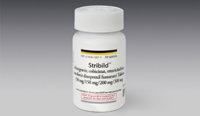 What's two extra years of exclusivity worth? Enough to spark a legal fight. The FDA posted new guidance on its website Friday, awarding certain combo meds 5 years of exclusivity compared with the previous three. Drugmakers had lobbied for the change, but the timing--and the wording--are bound to be controversial.
What's two extra years of exclusivity worth? Enough to spark a legal fight. The FDA posted new guidance on its website Friday, awarding certain combo meds 5 years of exclusivity compared with the previous three. Drugmakers had lobbied for the change, but the timing--and the wording--are bound to be controversial.
That's because the FDA says the new exclusivity period applies from the date of the new guidance's publication. It won't be retroactive, so it won't help a few companies that had specifically petitioned for longer exclusivity, namely Gilead Sciences ($GILD) and its four-way HIV pill Stribild, Pfizer's ($PFE) menopause drug Duavee, Ferring's colonoscopy prep Prepopik and Bayer's birth control combo Natazia.
Here's the issue: The FDA has long granted 5 years of exclusivity to combination drugs that comprise all-new compounds. The three-year award applied to combo meds that include at least one already approved product. After some industry persuasion--including three Citizen Petitions filed by Gilead, Ferring and Bayer last year--and internal debate, the agency in February rolled out some draft guidance that indicated it would lengthen the exclusivity period.
At the time, the agency said that the new rule wouldn't be retroactive. In fact, as the FDA Law Blog reports, the agency quickly denied these companies' petitions, saying the new guidance won't apply to them. They're stuck with the three years of exclusivity, the agency says.
The companies' hope turned quickly to disappointment, and then to resistance. As the FDA Law Blog reports, Gilead and Ferring immediately submitted petitions for the agency to reconsider, and Pfizer added a Citizen Petition of its own, on behalf of Duavee.
Fast forward to Friday, when FDA unveiled the new regime. Once again, the agency immediately denied the petitions on Stribild, Prepopik and Duavee. And it said that the new approach would apply from the date of the guidance's publication--not to any drugs approved beforehand.
Luckily for Gilead, its hepatitis C combo med Harvoni won approval Friday, too. So did Eisai's combination fighter for chemo nausea, Akynzeo. That would seem to give both drugs the extra two years of exclusive access to the market. (Unless the FDA plans to count "publication" from the day the guidance appears in the Federal Register; it hasn't yet.)
FDA Law Blog suggests that drugmakers denied their extra two years may soon show up in court. Other legal experts figure on challenges to the FDA's chosen cut-off date. Gilead, for one, tells The Wall Street Journal that it's reviewing the agency's response--read rejection--of its latest petition on Stribild. Stay tuned.
- check out the news from Regulatory Focus
- see the FDA Law Blog post
- get the WSJ blog post (sub. req.)
Special Report: Top 15 Drug Launch Superstars - Stribild - Gilead Sciences